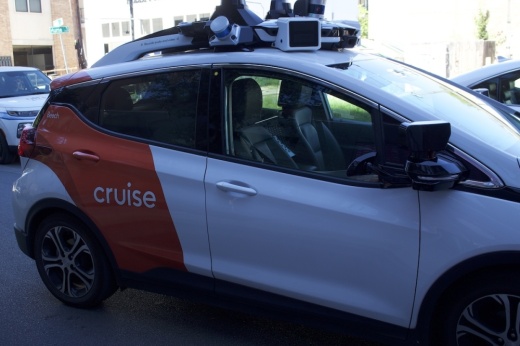The company stated that the decision was not related to any new incidents on the road and that the vehicles will only be operated under supervision.
“We think it’s the right thing to do during a period when we need to be extra vigilant when it comes to risk,” said Yariel Diaz, Cruise senior manager of government affairs, in a statement.
What's happening
The decision comes after the California Department of Motor Vehicles suspended Cruise’s deployment and driverless testing permits Oct. 24.
In a statement, the California DMV said that Cruise misrepresented safety information about the self-driving cars and deemed them “not safe for the public’s operation.”
According to performance data from Cruise, the driverless vehicles were involved in 65% fewer collisions than human ride-hail drivers in a study of the company’s first million miles.
“Because it's a computer, it doesn't get tired. It doesn't get distracted. It doesn't drive drunk,” Diaz said. “We're actually trying to get folks who are inebriated out of their cars and into ours to make the road safer that way.”
Diving in deeper
In Austin, almost 50 complaints have been made to the city about Cruise cars as of Oct. 23. Since July, these include near misses, collisions and complaints about nuisance and safety, according to the Austin Transportation and Public Works Department.
“Thankfully, there haven't been injuries related to driverless cars in our city, but they've caused their fair share of frustrations,” Mayor Pro Tem Paige Ellis said during a special called meeting of the Austin Mobility Committee on Oct. 27.
Since launching in Austin in September 2022, city leaders have been unable to regulate the vehicles due to state law.
In 2017, the Texas Legislature passed Senate Bill 2205, which amended the Texas Transportation Code with policies governing autonomous vehicles. In addition, SB 2205 placed oversight in the state’s hands, rather than local municipalities.
“Unfortunately our state Legislature is more interested in usurpring our local freedoms and our ability to do what's in the best interests of the people that we serve,” District 2 council member Vanessa Fuentes said Oct. 27.
Despite the inability to regulate the cars, the city has been in contact with companies operating driverless vehicles to understand the technology and coordinate communication on complaints made by residents and first responders.
“It's important for autonomous vehicle companies to realize that these driverless cars can be dangerous and that our public roads should not be a test playground,” Ellis said Oct. 27. “We should not be treated like guinea pigs.”
The details
Cruise had previously been operating over 100 completely driverless vehicles around downtown Austin, West Campus and Hyde Park.
Between the hours of 9:30 p.m. and 6 a.m., Cruise vehicles were available for ride-share services, which customers could hail through the Cruise app. These services will not be available until further notice.
Austin resident Adam Zook, who has ridden in a Cruise car before, said that the driverless technology relieved the anxiety of relying on a stranger’s driving skills.
“Sometimes the routes [the car] took were a little weird, but overall a good experience,” Zook said in an email to Community Impact. “On one of the rides, the car seemed to get confused while making a right turn at an intersection. Basically we just waited through one stoplight cycle, then it corrected itself and continued on the route.”
What residents should know
To report any incident involving an autonomous vehicle, residents are encouraged to call 311 or 911 in an emergency.
For more information about autonomous vehicles in Austin, visit www.austintexas.gov/page/autonomous-vehicles.





